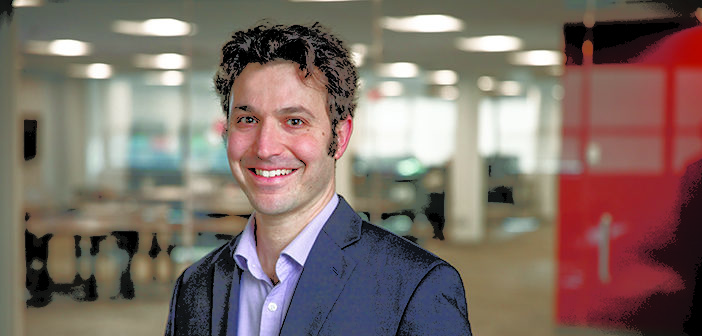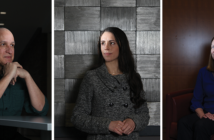A pathobiologist builds AI to improve diagnosis and treatment.
Artificial intelligence works really well in applications that rely on visual data; it’s how your iPhone recognizes your face. In pathology, each patient sample, with tens or hundreds of thousands of cells, is a rich data trove for training machine vision platforms.
This is the business of PathAI, founded in 2016 by pathologist Andrew Beck ’02 MMSc’06 MD’06, PhD. The Boston-based startup takes digitized images of patient specimens and analyzes them using artificial intelligence to improve the diagnosis and staging of diseases like cancer, and patients’ responses to therapies.
“We are building and validating technologies with the goal of making the diagnoses of pathologists more accurate, more reproducible, more predictive, and more efficient so they can impact patients in a positive way,” Beck says. The company, which has 70 employees, has raised $75 million and signed partnerships with companies like Bristol-Myers Squibb and Novartis, he says.
Beck first got into digital pathology at Brown, where he worked with Murray Resnick, MD, PhD, a professor of pathology and laboratory medicine, on computerized image analysis for Barrett’s esophagus, a complication of GERD, to determine the grade of dysplasia and its progression toward cancer. “The technology was much more primitive than what computers are capable of today,” Beck says, “but even then I was drawn to the intersection of computational analysis with images of tissue samples to extract new types of information.”
PathAI is working to analyze every major type of solid cancer, and is expanding into liver disease, to help pathologists make rapid and accurate diagnoses. But it’s not after anyone’s job, Beck says.
“In many areas where AI is making an impact, the jobs that it is helping people to do better are in demand,” he says, often because these jobs are becoming more complex. For example, in immuno-oncology, AI can help count every single immune and tumor cell and study how they relate to each other to help predict drug response. Meanwhile, Beck says, humans can spend more time “understanding how the diagnostic information relates to the best treatment for an individual patient.”
For many serious diseases, pathology is the “ground truth,” Beck says: it influences diagnosis, enrollment of patients in clinical trials, decisions about who does and doesn’t have cancer, and who should get an aggressive treatment versus watching and waiting. “We want to make sure that every patient has the best chance of receiving the right diagnosis, whether they’re in Boston, Providence, or Topeka,” he says




